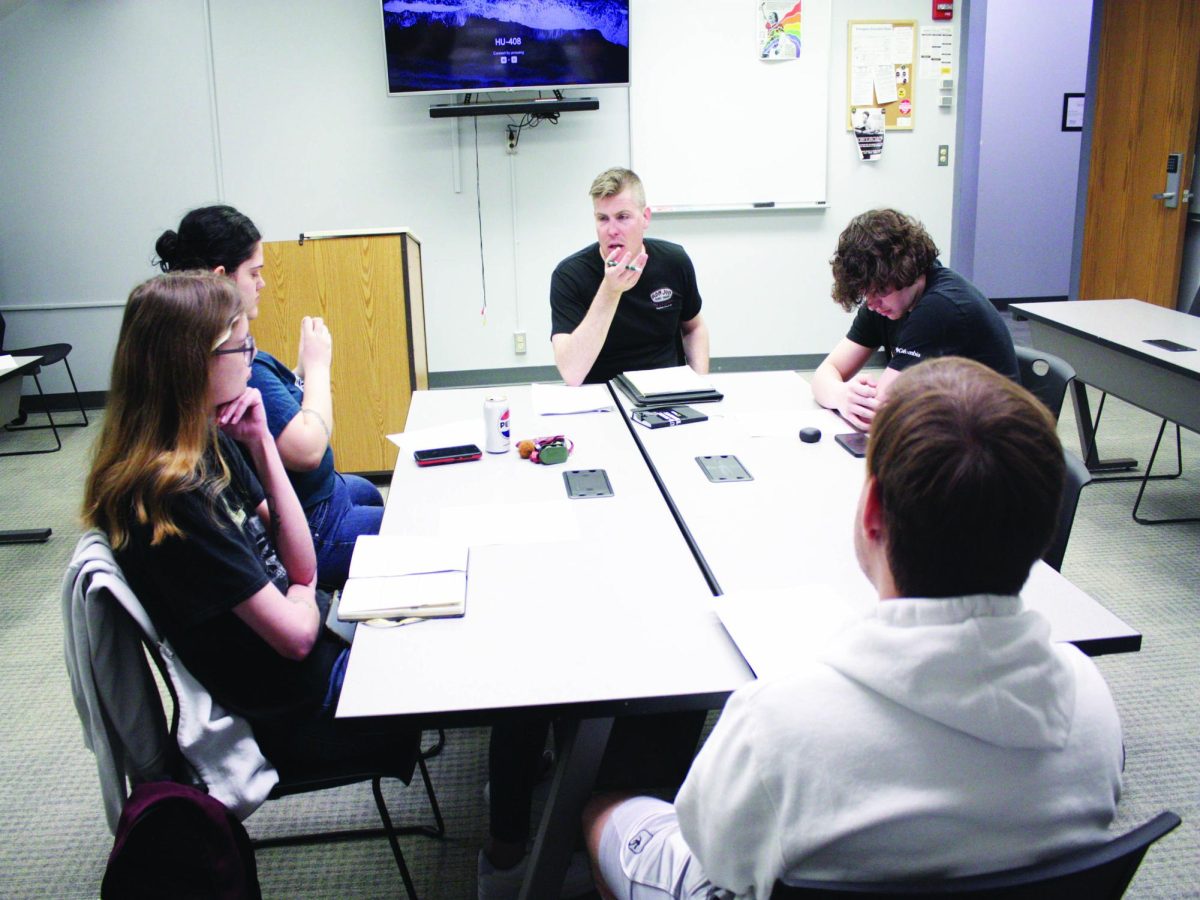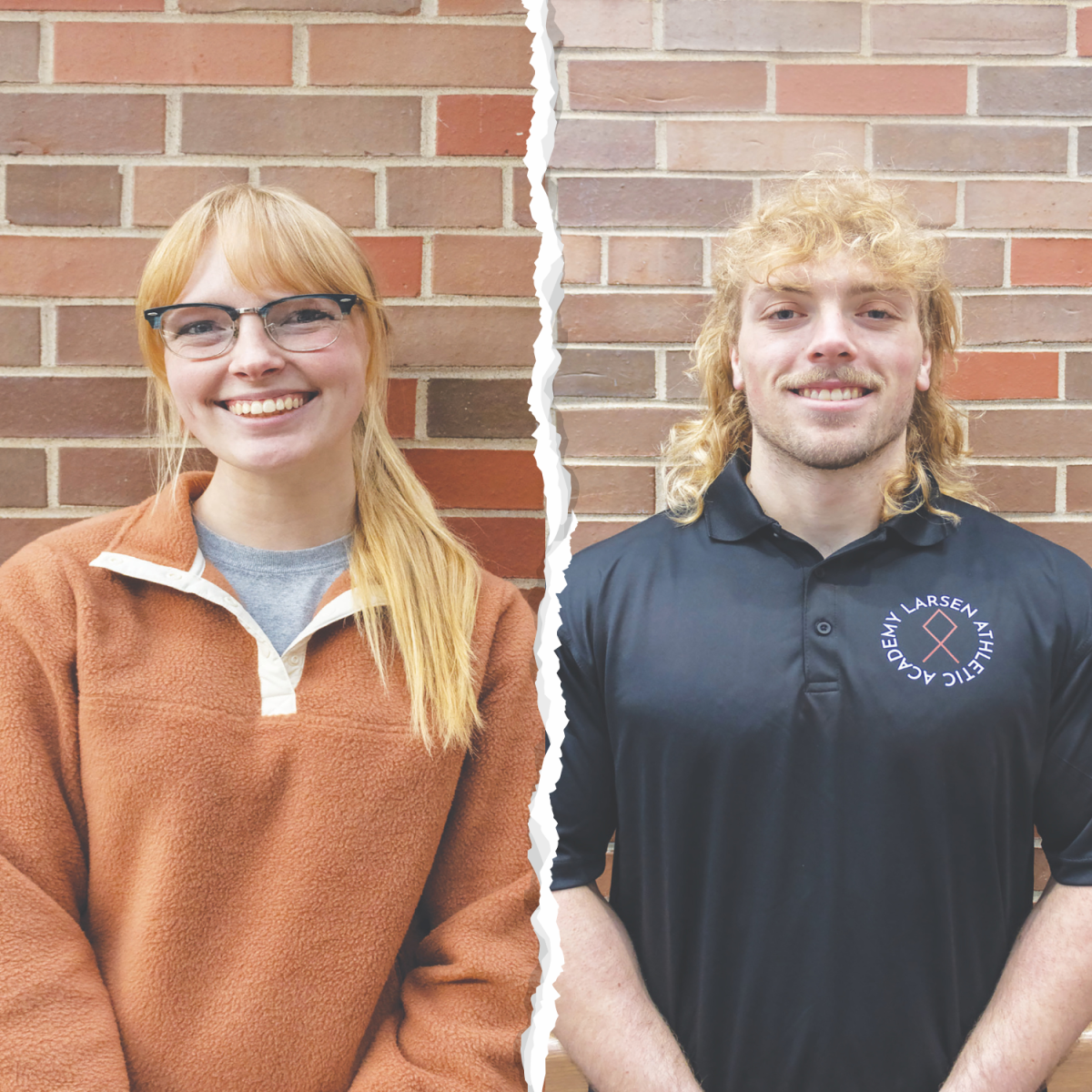Reel Time: Flyover Country
February 26, 2014
“Flyover Country,” the latest film from Nebraska independent filmmaker Jim Fields, premiered last Thursday at Ramsey Theatre.
Fields is known for his documentaries covering Nebraska history, and “Flyover Country” is his first feature film.
For a first, it’s pretty good. Set and filmed in Omaha, the movie follows friends Todd and Russ as they attempt to navigate through the fight for LGBT rights in the conservative Midwest, known politically as flyover states.
Todd (Myles Dabbs) is openly gay and first becomes enamored of Russ before they become best friends. He struggles throughout the movie to be accepted, particularly by the only family he has–a sister and her husband.
Russ (Mike Mecek) is straight and was raised by his extremely conservative grandfather. After Todd kisses him, he first reacts with anger, but eventually accepts Todd as his best friend. Throughout the film, several people assume that the two are a couple, an assumption that angers and frustrates Russ, who vehemently denies that he is gay. This is his struggle–one of learning who he is and accepting himself.
The story is one full of stereotypes. Not negative, but there is a reason stereotypes come to be—they are often true of someone. Fields and co-writer Shaun Vetick borrowed several of the scenes and plot points from actual circumstances and people.
They wanted to make a film about the struggle for homosexuals and those trying to understand their own sexuality in a conservative state, such as Nebraska.
“Flyover Country” is a dramedy, meaning it is written as a drama with comedic elements. And it works.
The stereotypes are both thought-provoking and light-hearted, giving the audience a good laugh while they contemplate a rather serious topic. Fields and Vetick don’t take a side in the story, instead focusing on the reality of the situation and leaving the audience to ponder that reality.
Much of Omaha is covered in the film, with scenes flickering around the city, which gives it a sense of real life. It makes it more familiar in that Nebraskans, particularly Omahans, will be able to recognize scenery from their own trips around the city. That really drives the point home—this is essentially happening in the audience’s backyard.
Dabbs and Mecek were both excellent. Mecek in particular defined his character’s arc, evolving from a young jock-like college student with an explosive temper to the much more grown up twenty-something adult. Russ is a complex character, and Mecek shows that depth, making you cringe and pity him at the same time that he severely beats his best friend.
“Flyover Country” was a moving film, heavily driven by the dynamic between Todd and Russ. Though the story may center on the concept of discovering one’s sexuality, it is still a search for one’s self, and that is something anyone can relate to his or her own life.
Self-discovery is a very human trait, and that’s what this film was most about—finding the confidence to be who you are.






